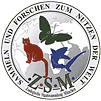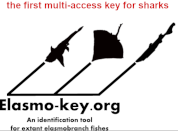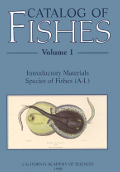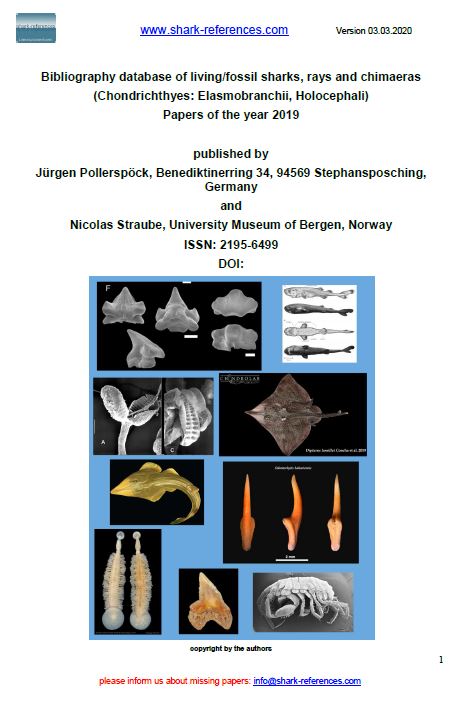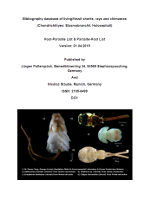
A systematic and stratigraphical cataloge of the fossil fish in the cabinets of Lord Cole and Sir Philip Grey Egerton: together with an alphabetical and stratigraphical catalogue of the same species with references to their published figures and descriptions. London, 1837
DOI: 10.5962/bhl.title.23781

Catalogue of the fossil fishes in the British Museum. Part. I. British Museum (Natural History): 474 p., fig., 17 pl.

Notes on the teeth of sharks and skates from English Eocene formations. Proceedings of the Geologists' Association, 16(1), 1–14, pl. 1.
DOI: 10.1016/S0016-7878(99)80036-4
Sur les poissons fossiles des terrains tertiaires supérieurs de l'Hérault. Bulletin de la Société géologique de France, (Serie 4), 4, 285–294

Sur les poissons fossiles du Stampien du Bassin parisien. Bulletin de la Société géologique de France, (Serie 4), 6, 195–205
Sur les poissons fossiles des terrains tertiaires supérieurs du Sud de la France. Bulletin de la Société géologique de France, (Serie 4), 12, 213–245
Sur les poissons fossiles des Terrains Tertiaires supérieurs du Sud-Ouest de la France. Bulletin de la Société géologique de France, (Serie 4), 14, 118–131

Über tertiäre Versteinerungen von den Bogenfelser Diamantfeldern. Die Diamantenwüste Südwestafrikas, Bd. II: 55–87, pl. B, fig. 31, 33.

Les Poissons de la Molasse suisse. Mémoires de la Société Paléontologique Suisse, 47, 57–119

Haaientanden uit de fosforietenlaag aan de basis van het Oligoceen in Overijssel en Gelderland. Publicaties van het Natuurhistorisch Genootschap in Limburg, Reeks XIII: 61-78

Deux faunes de sélaciens du Miocène méditerranéen de France et leur signification bathymétrique. Compte Rendu sommaire des Séances de la Société Géologique de France, 7, 292–293
Notes on the Upper Cretaceous and Lower Tertiaray fish faunas of northern West Greenland. Meddelelser fra Dansk Geologisk Forening, 19(2), 204–217

Fossil Chondrichthyes of Japan. Journal of the Geological Society of Japan, 78(11), 585–600
Lithostratigraphical and biostratigraphical subdivision of Tertiary deposits (Oligocene - Pliocene) in the Winterswijk - Almelo region (eastern part of the Netherlands). Scripta Geologica, 29, 1–167


Miocene fossils of the Mizunami group, central Japan. 3. Elasmobranchs. Monographs of the Mizunami Fossil Museum, 5, 1–99

Bausteine und Fossilien aus der Oberen Meeresmolasse bei Kempten. Berichte des Naturwissenschaftlichen Vereins für Schwaben e.V., 90, 2–12

Fossil fish remains from the Late Paleocene Tuscahoma and Early Eocene Bashi Formations of Meridian, Lauderdale County, Mississippi. Part I. Selachians. Palaeontographica, Abt. A, 230(4–6), 97–138

Asociaciones faunisticas de condrictios en el Cenozoico de la Peninsula de Baja California, Mexico. Profil, 18: 1–4

An overview of the Mexican fossil fish record. In G. Arratia, H.–P. Schultze & M.V.H. Wilson (Eds.), Mesozoic Fishes 5 – Global Diversity and Evolution (pp. 9–34). Verlag Dr. Friedrich Pfeil
Deep-water chondrichthyans from the Early Miocene of the Vienna Basin (Central Paratethys, Slovakia). Acta Palaeontologica Polonica, 58(3), 487–509
DOI: 10.4202/app.2011.0101

Deep-sea elasmobranch fauna with the first descriptions of genera Arynchobatis and Pseudoraja from the Miocene Yatsuo group in Toyama, central Japan. Historical Biology, 32(8), 1120–1142
DOI: 10.1080/08912963.2019.1566325
